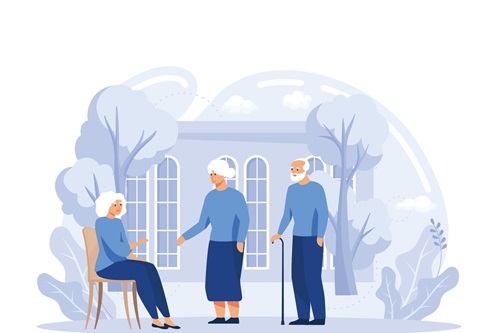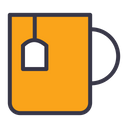Elderly

About Healthy Eating
Healthy eating don't really change that much with age, especially when healthy eating habits are already developed. However, it is still important to understand the specific nutrition requirement for good health.
Some Important Advice for Seniors
- Vitamins & Minerals
Lack of some important vitamins and minerals is likely to cause digestive issues while consuming enough vitamins and minerals helps reduce the risk of developing severe health issues such as heart disease, high blood pressure, diabetes, etc. - Maintaining healthy bones and teeth
Protein, Calcium and Vitamin D are essential for building, repairing and maintaining healthy bones and muscles. Hence sources of Proteins and Vitamins including all meats, fish, eggs and seafood, some sun exposures are required. - Importance of fiber and fluids
You might not feel as thirsty as you once did, even when your body needs fluids. Water is essential for hydration, digestion and blood volumes, therefore try to drink 6-8 cups of fluid a day. - Prepare and store food safely
Avoid food-borne illnesses particularly bad for older people by following the food safety guidelines. - Importance of fish
Regularly consuming fish may reduce the risk of hear disease, stroke, macular degeneration, meanwhile fish oil may also help with arthritis. - Physical Activities
Healthy weight and muscle strength can be maintained through physical activities such as walking. - Careful with teeth
Substitute hard foods such as nuts, grains and hard fruit &vegetables with whole grains, soft, cooked canned fruit & vegetables, and nut paste and butter.
Recommended standard single serve from the 5 major food groups
| *space* | Vegtables | Fruits | Lean meat & Poultry, fish, eggs, tofu, nuts, seeds, legumes & Beans | Milk, Yoghgurt, Cheese or alternatives |
|---|---|---|---|---|
| Standard serve | 75g (100-350kilojoules) | 150g (350kilojoules) | 500-600 kilojoules | 500-600 kilojoules |
About Water

The daily water requirement of the body depends on age, weight, sec and air temperature. The recommended daily water intake for male and female from 51yr and above are 3.4L/day and 2.8L/day respectively.
Some common intake source of water for our body includes: Water, Beverages, Fruits, Juices
The recommended best times to drink water includes:- When you first get up
- Before each meal
- With snack
- Before a workout
- With medication if allowed
- Drink more water to prevent illness following exposures
- Have a glass when tired
In June 2009, “scientific American” published an article titled “Fact or Fiction? You must drink 8 glasses of Water Daily”. The article describes the 8x8 rule of thumb dictating that you must drink 8ox glasses of water every day. Tea, coffee, soda, juices and sports drinks do not count towards the eight-glass total. This is a simple guide that offers an easy way of measuring the approximate amount of daily water intake required for each individuals in all age groups.
Some healthy habits to increase your daily water intake:
- Always carry a bottle of clean water with you wherever you go
- Set a periodic reminder so that you don’t forget to drink water
- Exercise can help make you want to drink water more
- Keep a little log which can be as simple as a tick mark for each glass of water you drink
Find support:
- Your GP
- Your pharmacist
- Your career
- 24/7 online support from Dietitians Australia Tel:1800 802 942
- 24/7 online support from Nutrition Australia Tel:(03)8431 5800